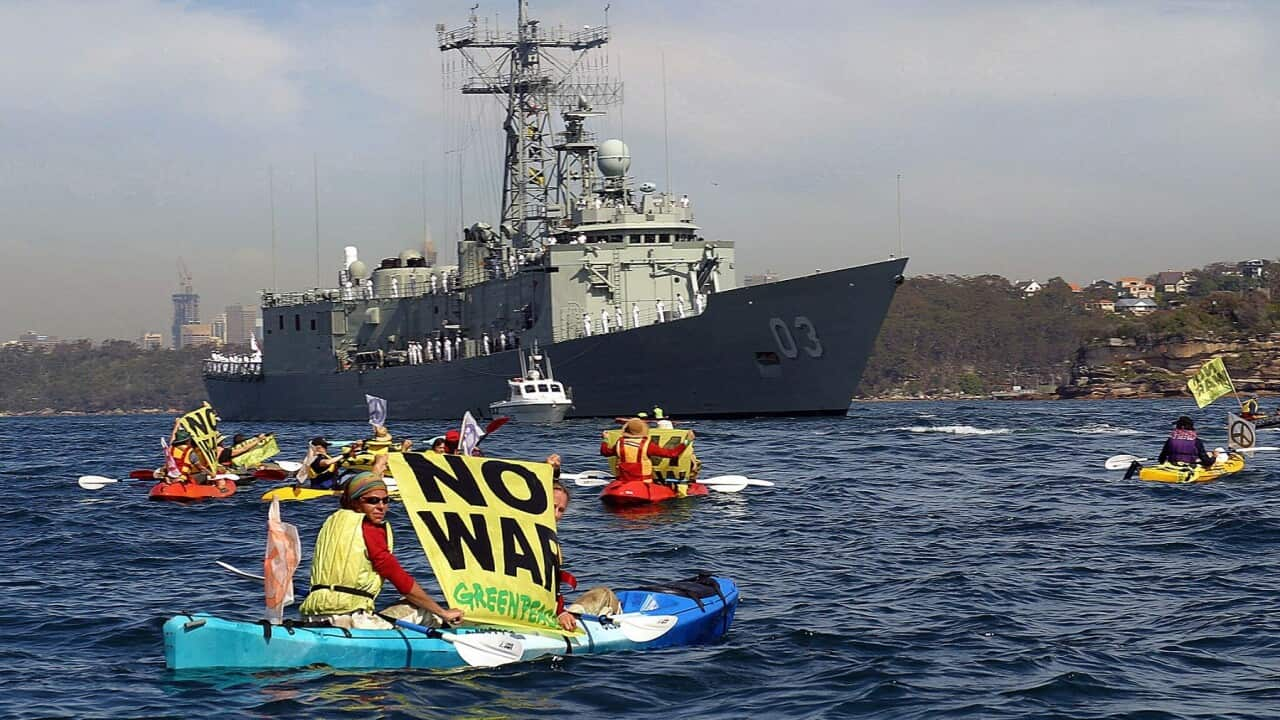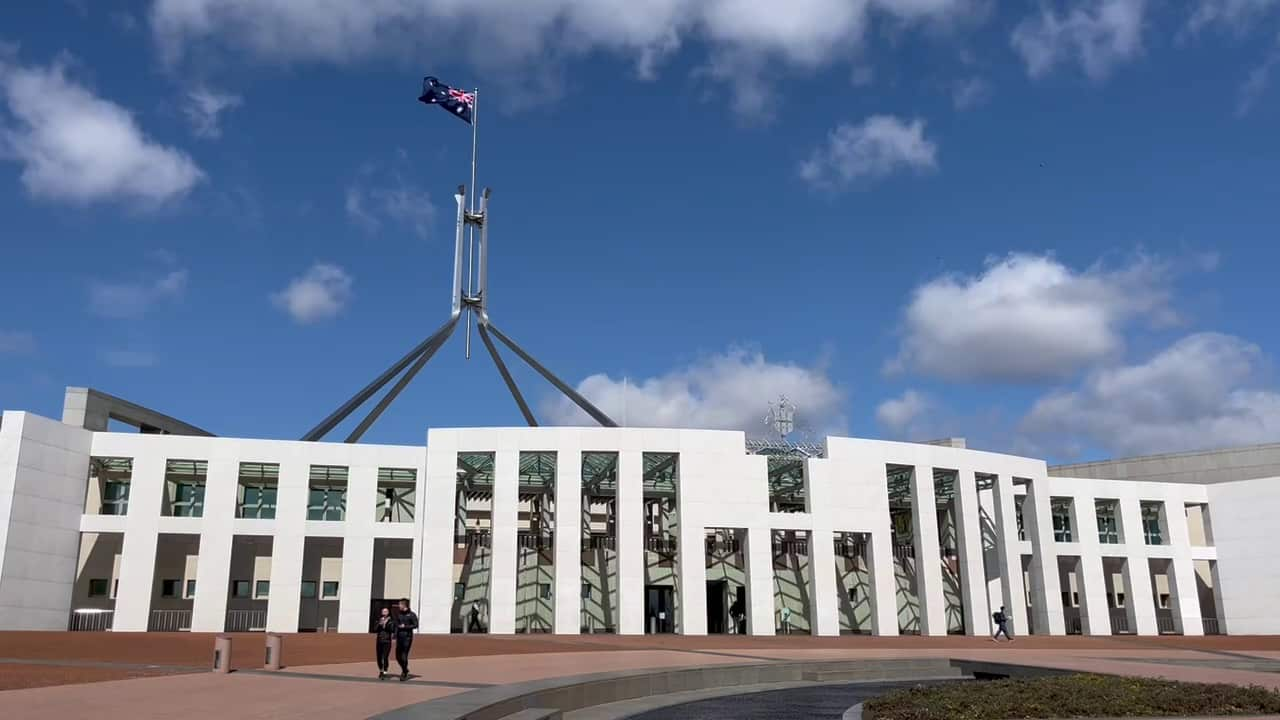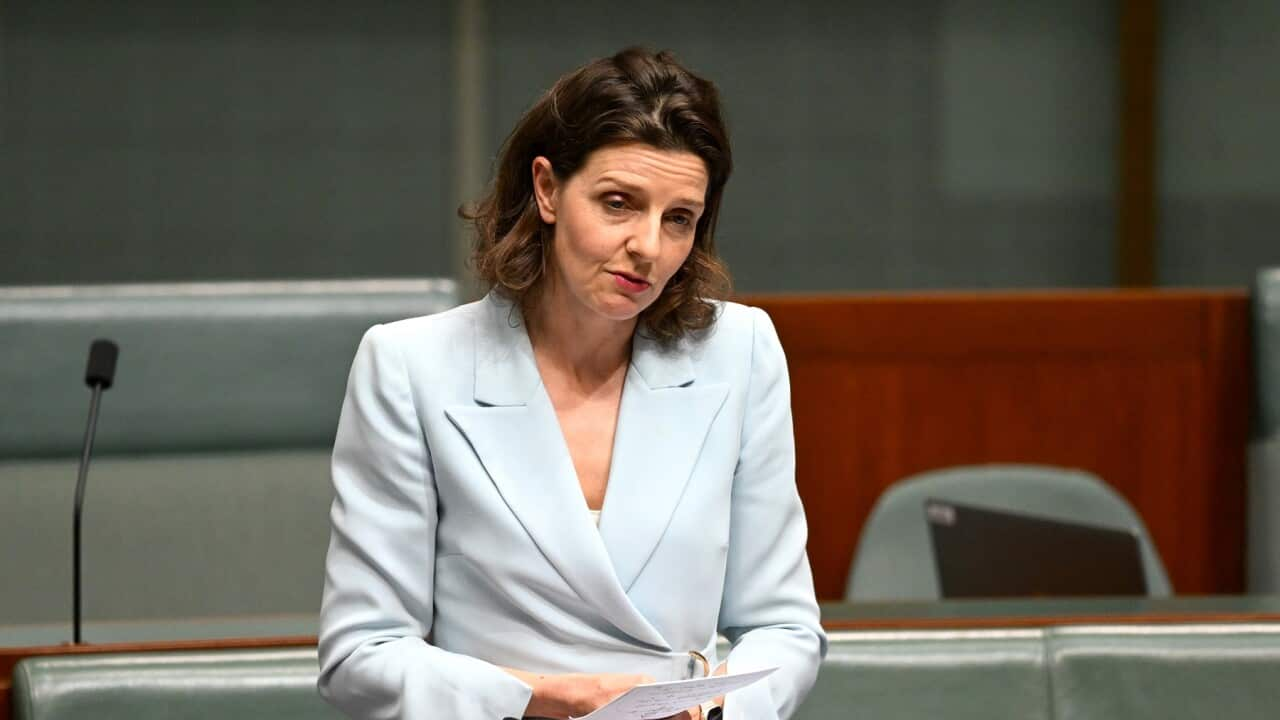TRANSCRIPT
2003 was a big year in many ways: Ronaldo debuted for Manchester United -
"Here's Ronaldo for the club, gets right to it."
There was the Space Shuttle Colombia disaster -
"Tonight, Saturday February 1st, a sight no-one in America thought we'd see again: the loss of another space shuttle, the loss of seven astronauts..."
And at home, a devastating Canberra firestorm that claimed the lives of four people.
"Numerous houses alight here; get me some more help, please."
Robert Hill was the then Defence Minister.
"The government was still doing so many other things... and in some ways it sort of reflects the way John Howard saw the job of government, that you'd be doing national security in the morning, health in the afternoon, and then immigration at night... But the war - the 18th of March - is probably the thing that one would reflect on most."
The war he's referring to is the decision for Australia to join the invasion of Iraq, announced by then US President George W Bush in early 2003.
"My fellow citizens: at this hour, American and Coalition forces are in the early stages of military operations to disarm Iraq, to free its people, and to defend the world from grave danger."
Then Prime Minister John Howard backed the call at a May press conference at the president's Texas ranch.
"Can I, Mr President, congratulate you on the leadership that you gave to the world, at times under very great criticism, at times facing very great obstruction. But you had a resolute, clear view of what had to be done, and we were very pleased, and very proud, and very determined, when the final decision was taken to be part of that."
Twenty years on, Cabinet Papers are shining some light on how the decision was made for Australia to join the so-called Coalition of the Willing.
Dr David Lee is a Cabinet historian.
"What we have in this release are some documents of Cabinet, and one of those particularly is very important. That's the minute of 18th March, which records Cabinet's final approval to endorse military action. So that is an important record, probably the most important record in the release."
Cabinet also looked at the impact of the war at home, including how onshore protection visa processing was taking the changed situation in Iraq into account, and of the importance of sending people back to Iraq when the security situation permitted it - whether they wanted to return or not.
But David Lee says the most important revelation concerns a memorandum of advice which Australia used as justification for the war.
"And so we have in this minute recording how the legal advice has been assembled, but with cooperation between DFAT (Department of Foreign Affairs and Trade) and the Attorney-General's Department. It reiterates the motive of weapons of mass destruction... as being the primary motivation for Australia's participation."]]
Much of the story behind how the decision was made remains untold.
Simon Froude is the Director-General of Australia's National Archives.
He says most discussions on the Iraq war were had with a handful of senior ministers in the National Security Committee.
"There were only 334 Cabinet records made during the 2003 year, and we have considered 260 of those for this release process. The number of records in Cabinet would normally be quite a bit higher than that. And I think that's a reflection of the fact that because of the discussions that were occurring within the NSC, a lot of the records were created through the NSC process as opposed to the Cabinet process."
David Lee says many of those NSC records remain sealed.
"It (the NSC) necessarily did a lot of the heavy lifting in relation to matters of foreign policy, defence, intelligence - including Iraq... What we hope to see in due course is release of those records which will help to give a fuller picture of decision-making."
Back then, the national mood against the war was palpable.
There were public protests taken directly to the President, including by then Senator Bob Brown -
BUSH: "Saddam's regime is gone and no-one -
SPEAKER: "Senator Brown, I warn you. Senator Brown will excuse himself from the house."
And there more diplomatic overtures from then Opposition Leader Simon Crean.
"On occasion friends do disagree, as we did on this side with you on the war in Iraq."
Robert Hill says the Cabinet did take claims of weapons of mass destruction seriously at first.
"It wasn't one day when we sort of opened our eyes and said, gee that was all wrong... The view was that the weapons would be found pretty quickly thereafter. So then when they weren't found then there was this global debate, which the security agencies were leading, as to what had happened to the weapons. I guess as the year wore on we were scratching our heads - as everyone was scratching their heads - as to where - how come the information was wrong."
Now, the former Defence Minister says hindsight is a wonderful thing.
"In terms of protecting Australia's interests on the information that was known at the time, it was the right call. From my perspective, if we went to war on the basis of the weapons of mass destruction. If the intelligence had have been different, it would have been a different situation."













